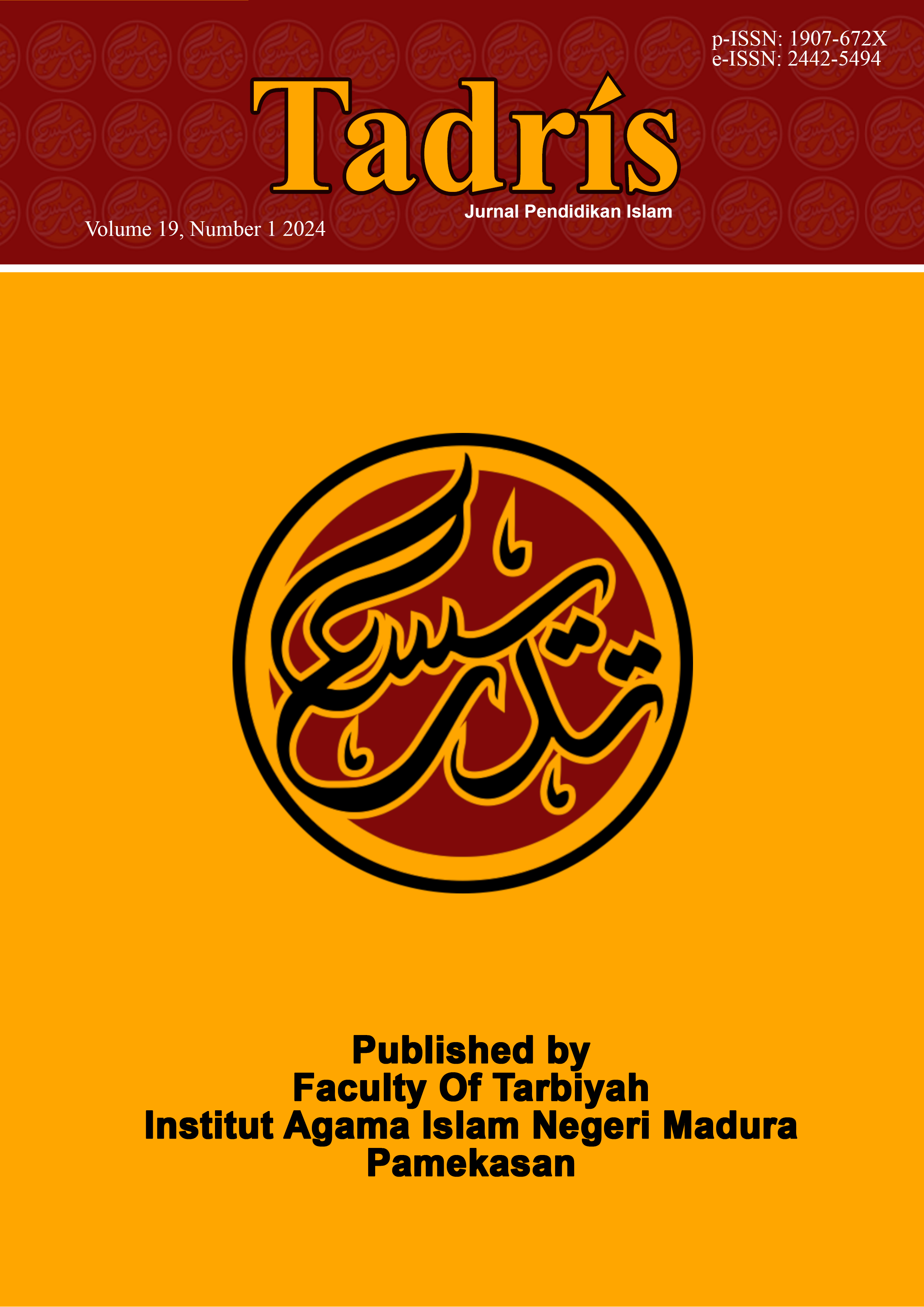Madrasah Committee: Implementation of “Merdeka Belajar” and The Progress of Islamic Education in Pamekasan
 Abstract views: 331
,
Abstract views: 331
,
 PDF downloads: 377
PDF downloads: 377
Abstract
The madrasa committee is an independent institution formed by educational institutions to have a role in improving the quality and services of education in the form of direction, support for both educational facilities and infrastructure, and supervision of the implementation of education in each education unit. The madrasa committee plays a role as an Education Advisory, Education Supporting, Education Mediatory, and even controlling the implementation of Education itself. We must carry out the policy of "Merdeka Belajar", because this is a mandate from the government that all education practitioners in each education unit are required to implement "Merdeka Belajar" policy which is then poured into the "Guru Penggerak", the education practitioners are through the program in each education unit. Therefore, madrasa committees must be present and support the policies of this program. In this research method, the researcher used a qualitative approach with a phenomenological descriptive type. The informants in this study are those who the researchers consider to know and are related to this research. The results of the study show that: 1) Madrasah committees have the duty and responsibility to make madrasas a progressive educational institution, 2) The potential and strengths of madrasas must be able to be explored and maximized so that later madrasas are no longer the number 2 educational institution but have become the leading choice of the community, 3) Madrasas become centers of excellence for education because educational institutions in the form of madrasas present more menus and scientific variants when compared to educational institutions in the form of schools.
Downloads
References
Dasar utama pembentukan komite sekolah pertama kalinya adalah undang-undang No. 25 Tahun 2000.
Departemen Pendidikan Nasional, Acuan Operasional dan Indikator Kinerja Komite Sekolah, (Jakarta: Direktorat Jendral Manajemen Pendidikan Dasar dan Menengah, 2006).
Departemen Pendidikan Nasional, Pemberdayaan Komite Skolah: Modul 2 Pengingkatan Kemampuan Organisasi Komite Sekolah, (Jakarta: Departemen Pendidikan Nasinal, 2009).
Departemen Pendidikan Nasional, Pemberdayaan Komite Skolah: Modul 3 Peningkatan Wawasan Kependidikan Pengurus Komite Sekolah, (Jakarta: Departemen Pendidikan Nasinal, 2009).
Ditjen Pendidikan Dasar, Manual Pembentukan Komite Sekolah & Pemilihan Pengurus Baru Komite Sekolah, (Jakarta: Kemdikbud, 2012).
KBBI, Kamus Besar Bahasa Indonesia.
Kementerian Pendidikan dan Kebudayaan, Penguatan Kelembagaan Komite Sekolah (Modul 2), (Jakarta: Direktorat Jendral Pendidikan Dasar, 2012).
Kementerian Pendidikan dan Kebudayaan, Peningkatan Kemampuan Organisasi Komite Sekolah (Modul 3), (Jakarta: Direktorat Jendral Pendidikan Dasar, 2012).
Kementerian Pendidikan dan Kebudayaan, Peningkatan Wawasan Kependidikan Pengurus Komite Sekolah (Modul 1), (Jakarta: Direktorat Jendral Pendidikan Dasar, 2012).
Kepmendiknas nomor: 044/U/2002
Keputusan Menteri Pendidikan Nasional No. 044/U/2002. Departemen Pendidikan Nasional, Pemberdayaan Komite Skolah: Modul 1 Penguatan Kelembagaan Komite Sekolah, (Jakarta: Departemen Pendidikan Nasinal, 2009).
Internet Source
Badan Pusat Statistik Kabupaten Pamekasan (bps.go.id)
http://emispendis.kemenag.go.id/dashboard/?content=datastatistik&action=kab&prov=35&kab=28
Copyright (c) 2024 TADRIS: Jurnal Pendidikan Islam

This work is licensed under a Creative Commons Attribution-NonCommercial 4.0 International License.
The journal operates an Open Access policy under a Creative Commons Non-Commercial 4.0 International license. Authors who publish with this journal agree to the following terms:
- Authors retain copyright and grant the journal right of first publication with the work simultaneously licensed under a
 Commons Attribution-NonCommercial 4.0 International License
Commons Attribution-NonCommercial 4.0 International Licensethat allows others to share — copy and redistribute the material in any medium or format, and adapt — remix, transform, and build upon the material.
- Authors are able to enter into separate, additional contractual arrangements for the non-exclusive distribution of the journal's published version of the work (e.g., post it to an institutional repository or publish it in a book), with an acknowledgement of its initial publication in this journal.
- Authors are permitted and encouraged to post their work online (e.g., in institutional repositories or on their website) prior to and during the submission process, as it can lead to productive exchanges, as well as earlier and greater citation of published work (see The Effect of Open Access).














